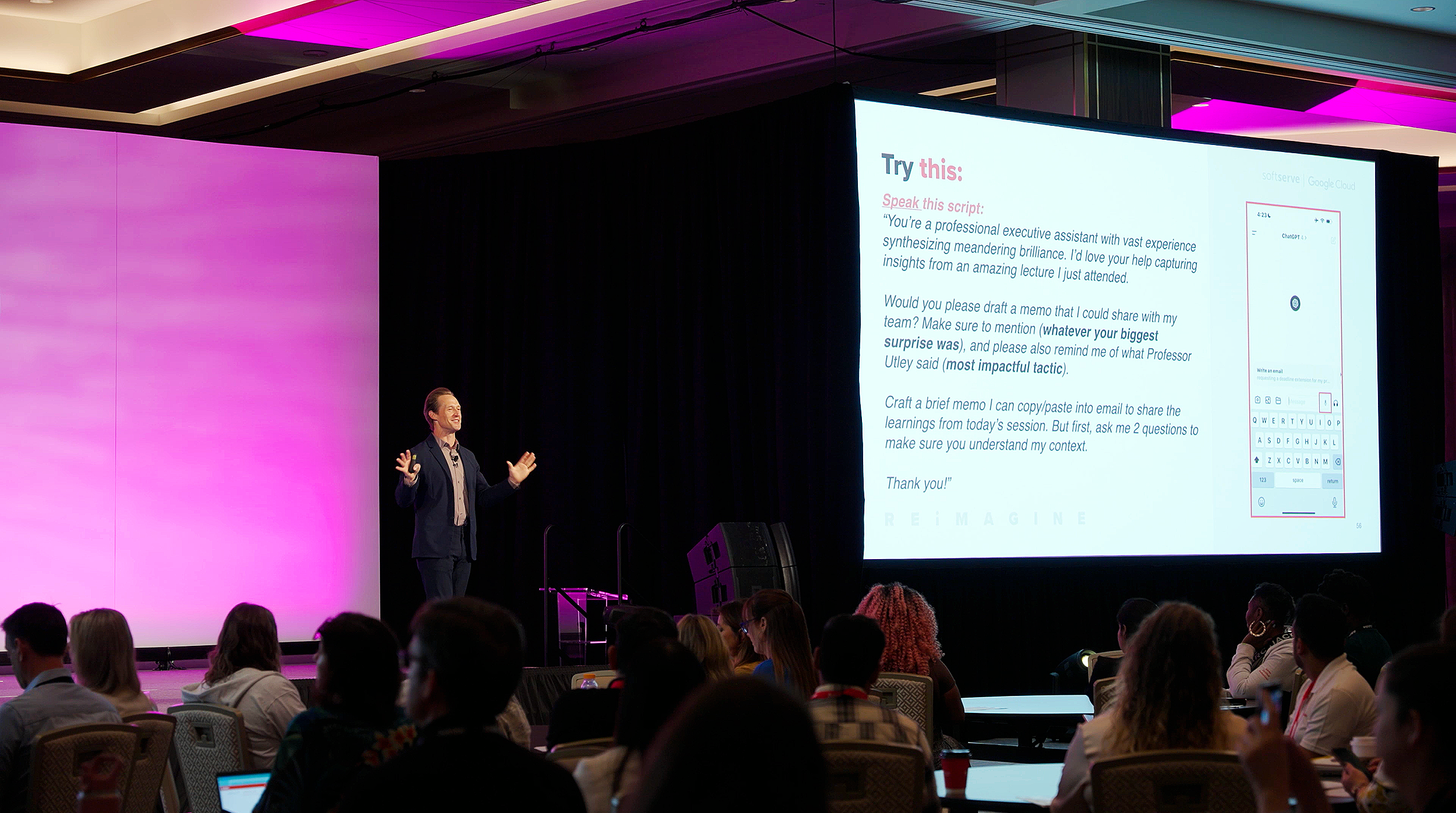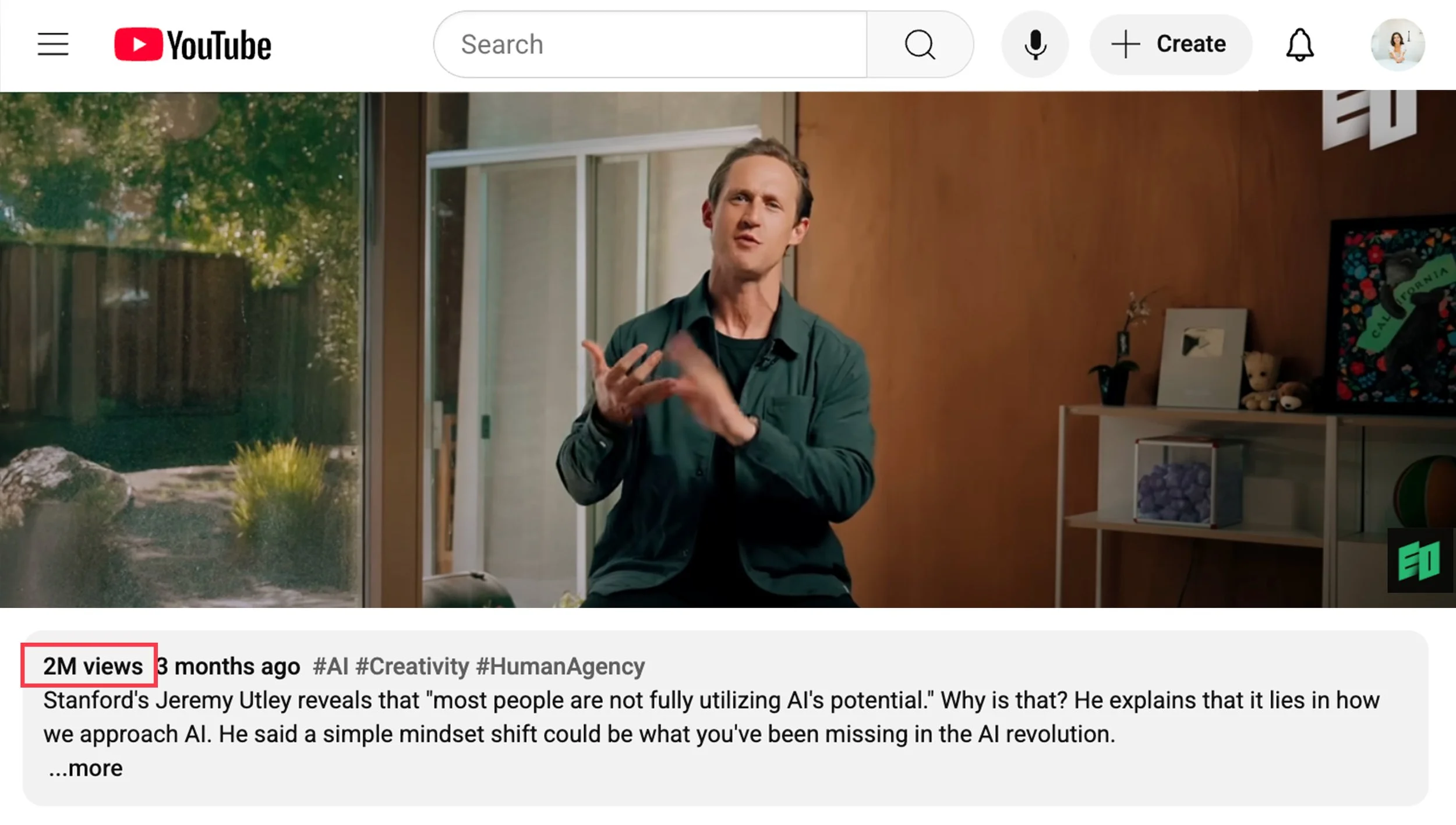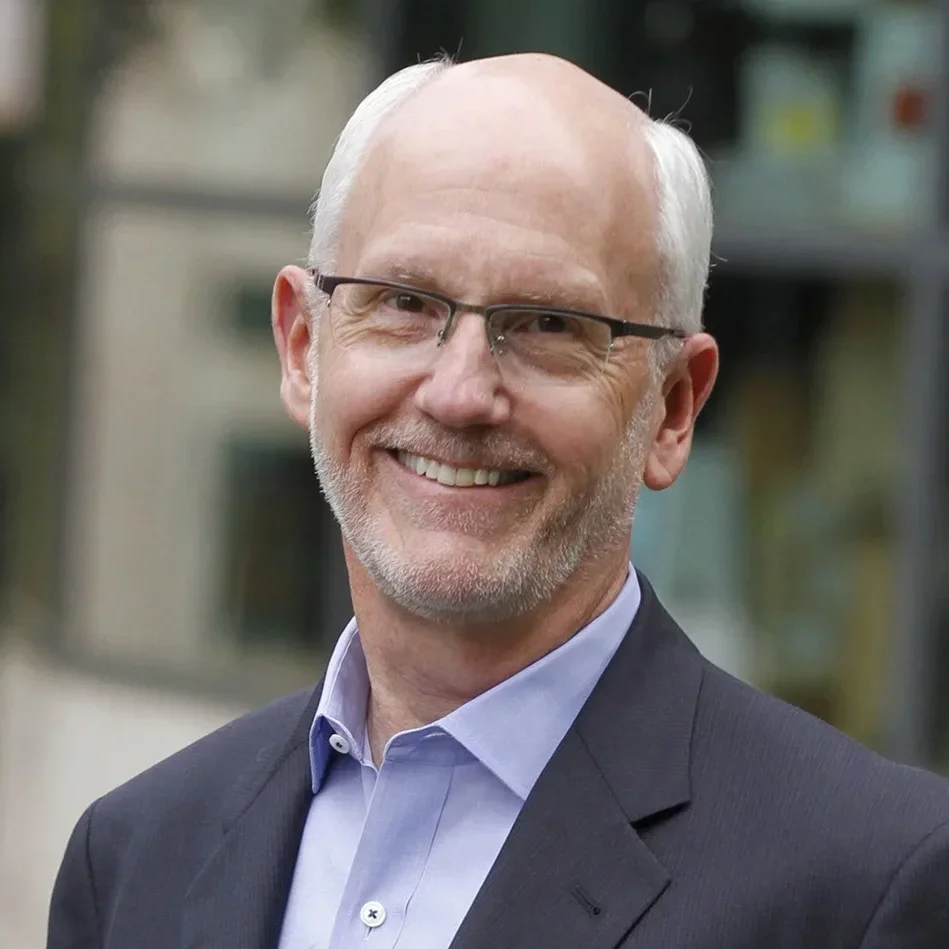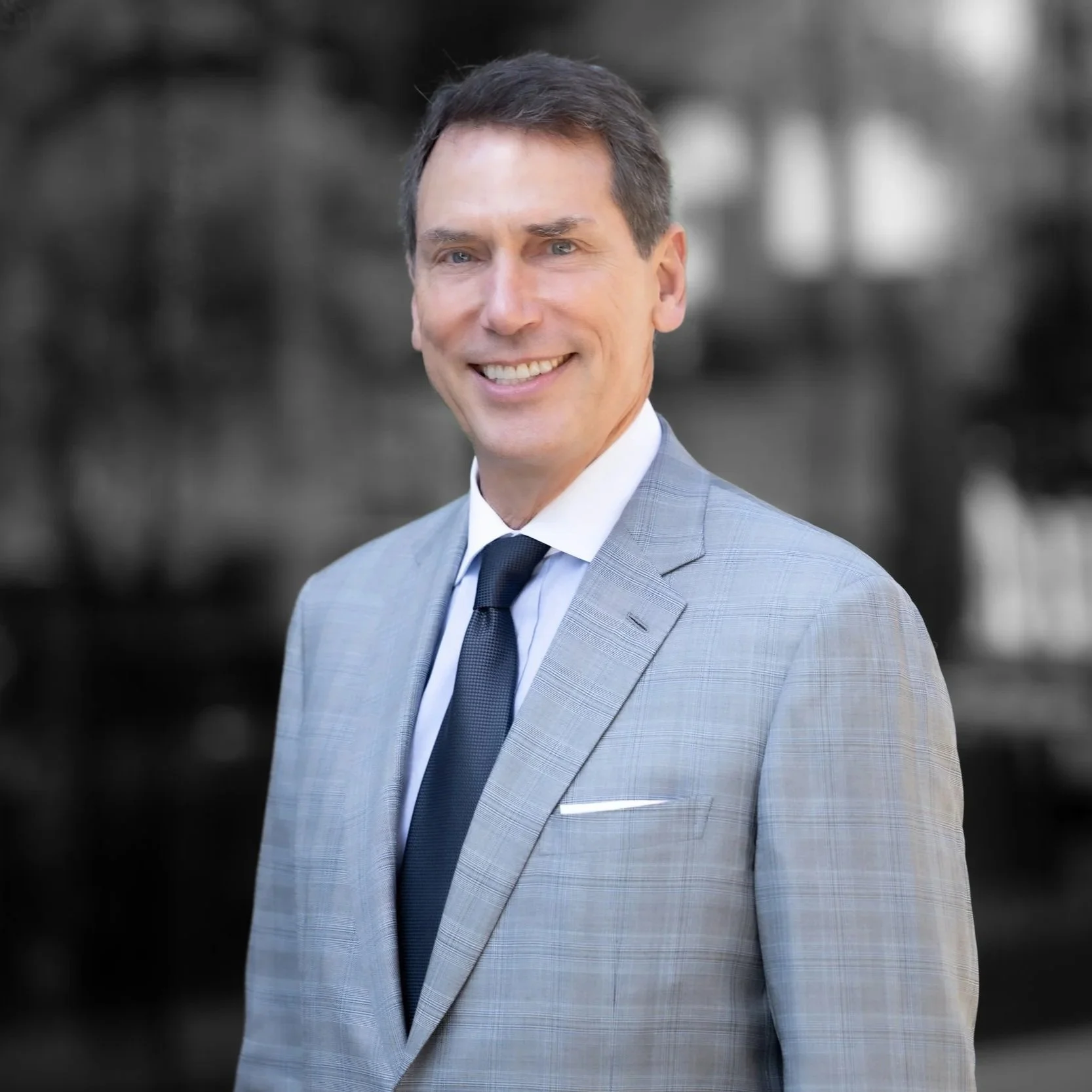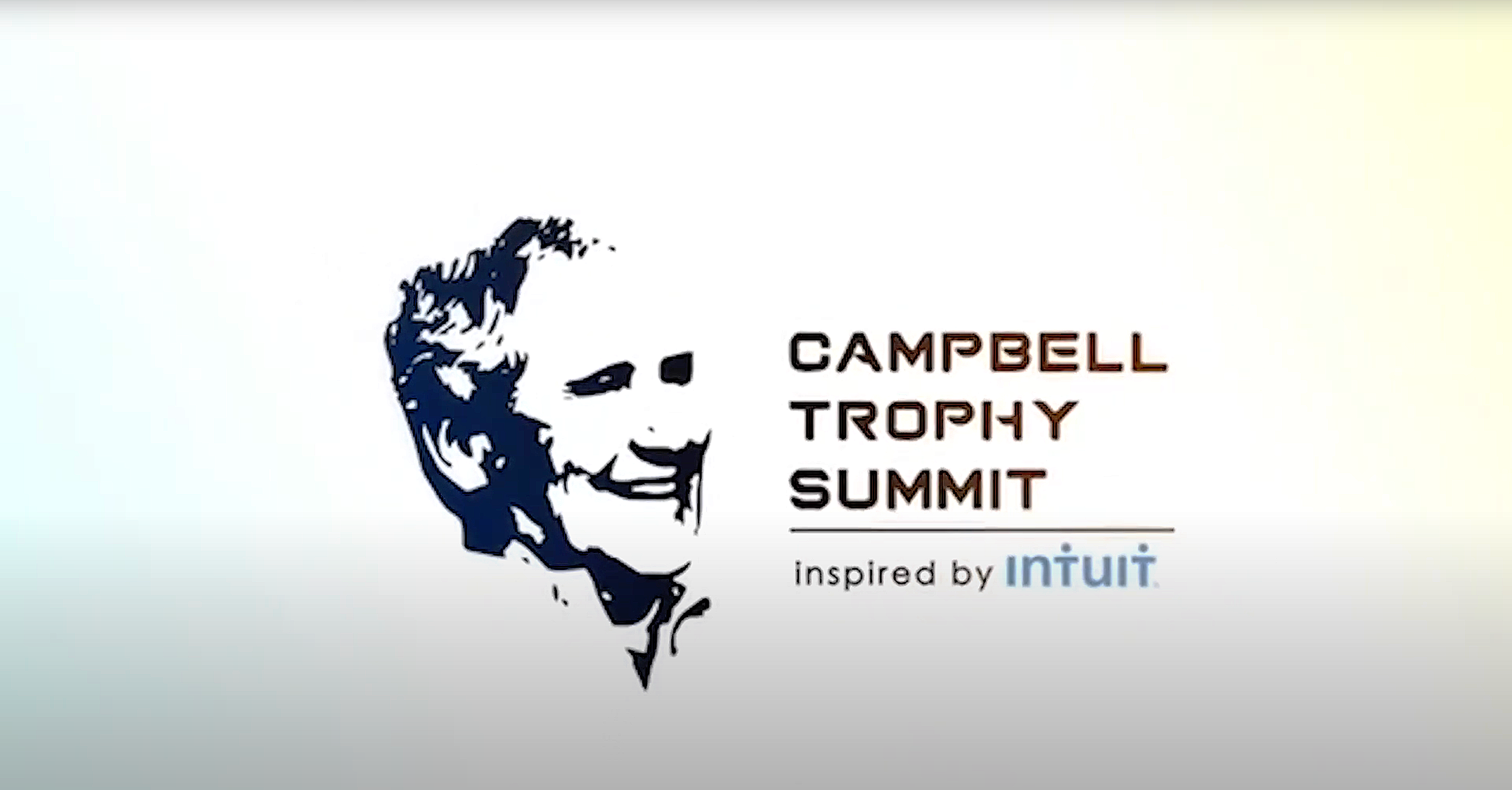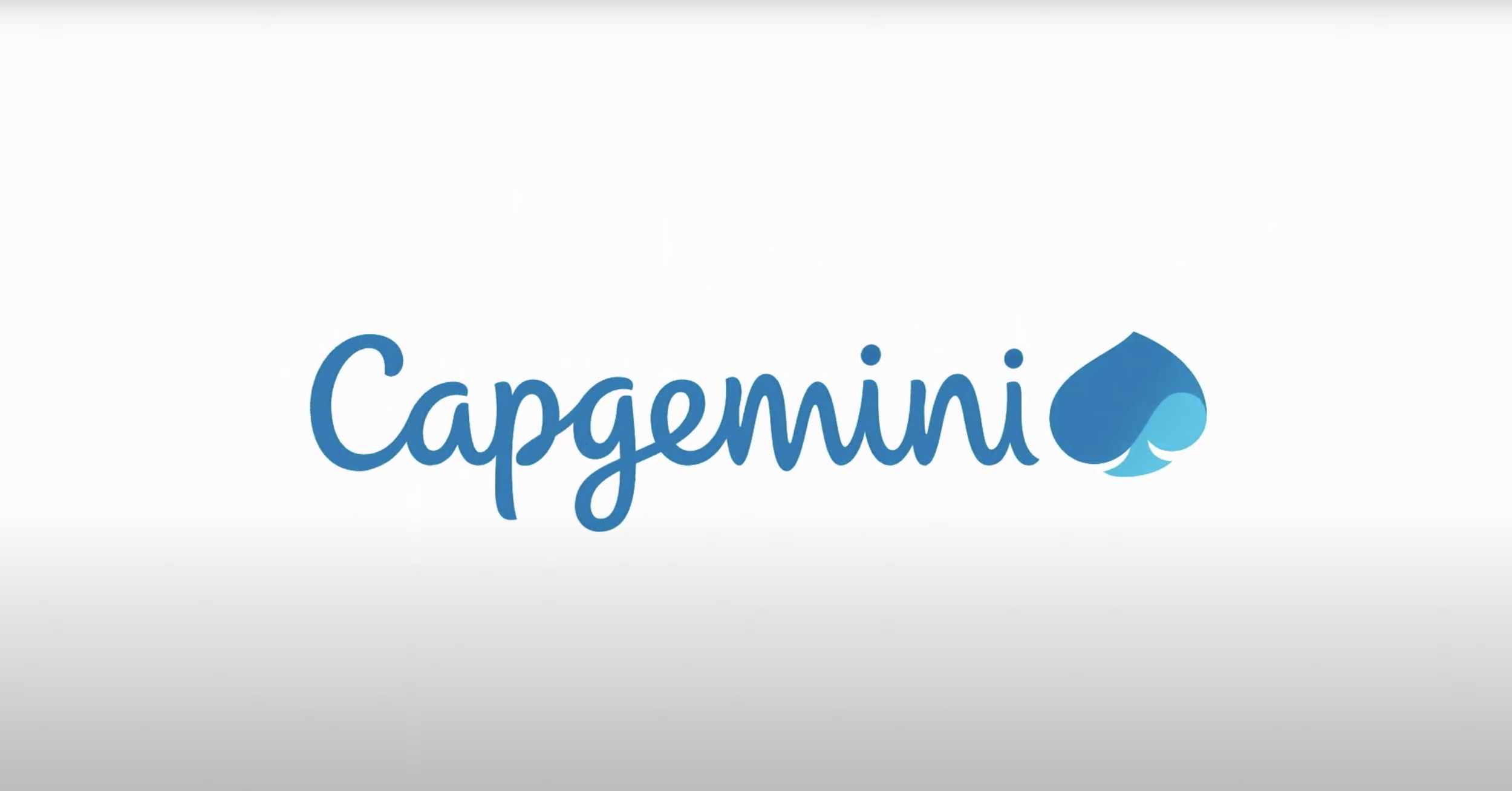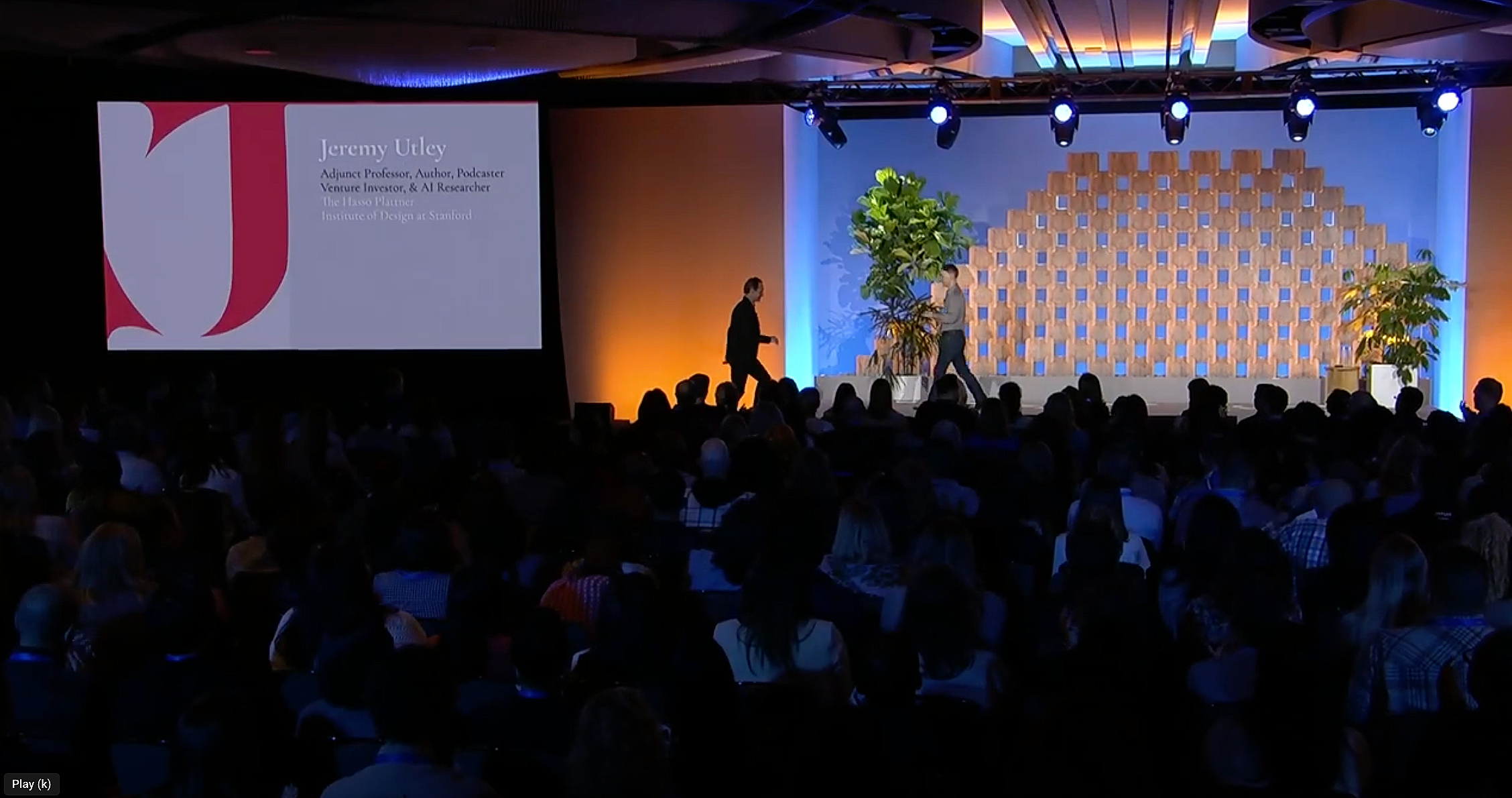
Jeremy Unleashes
Creative Potential
Global AI Keynote Speaker | Practical AI Upskilling | Senior AI Advisor
Practical & Inspirational AI Keynotes to Drive Real Results.
Innovation. Leadership. AI. Transformative Learning.
Speech Topics
Keynote #1: The Impact of AI on Innovation
Keynote #2: Building Innovation Capacity
Keynote #3: Achieving the Potential of Diverse Teams
Keynote #4: Ideaflow: The Practice of Innovation

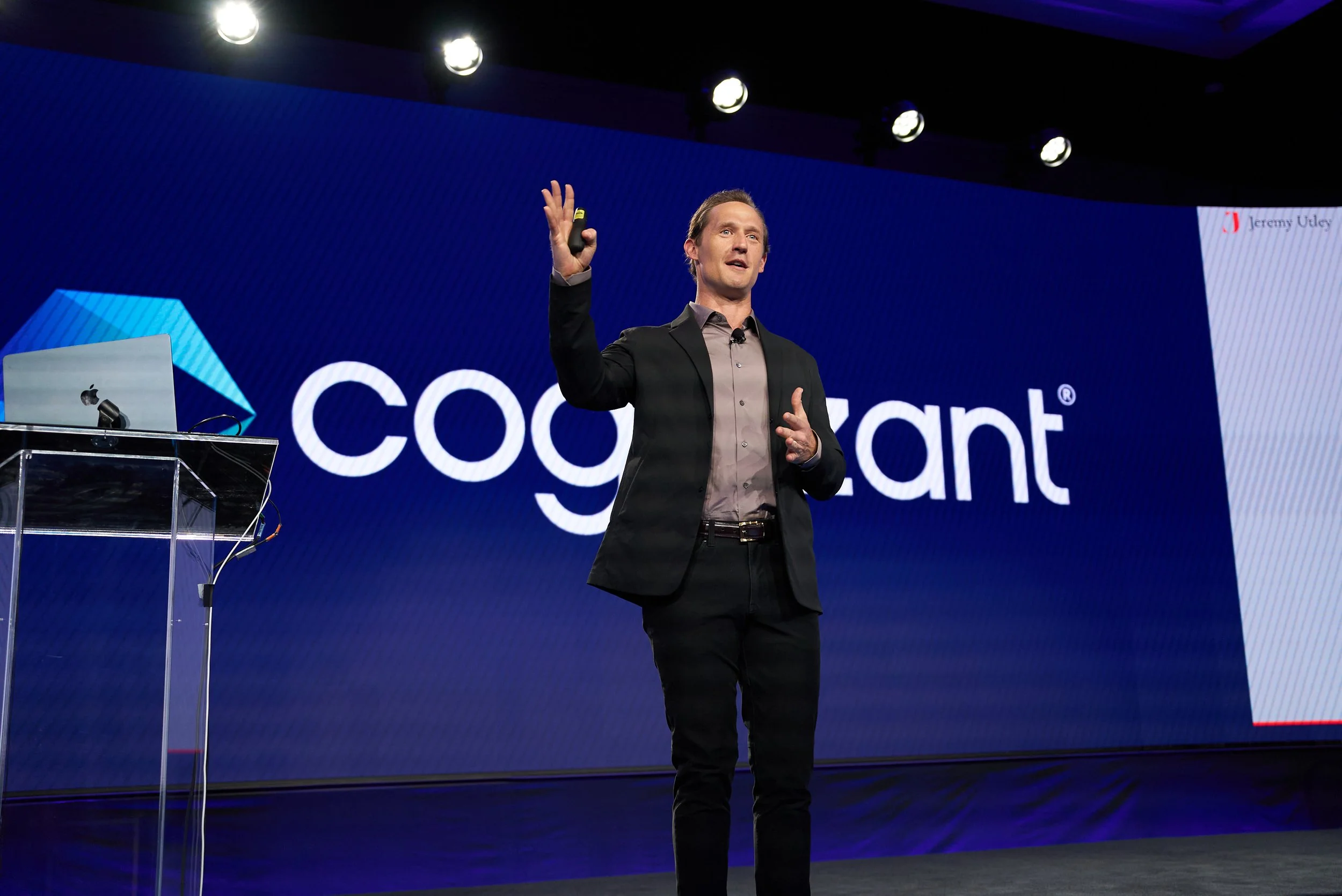
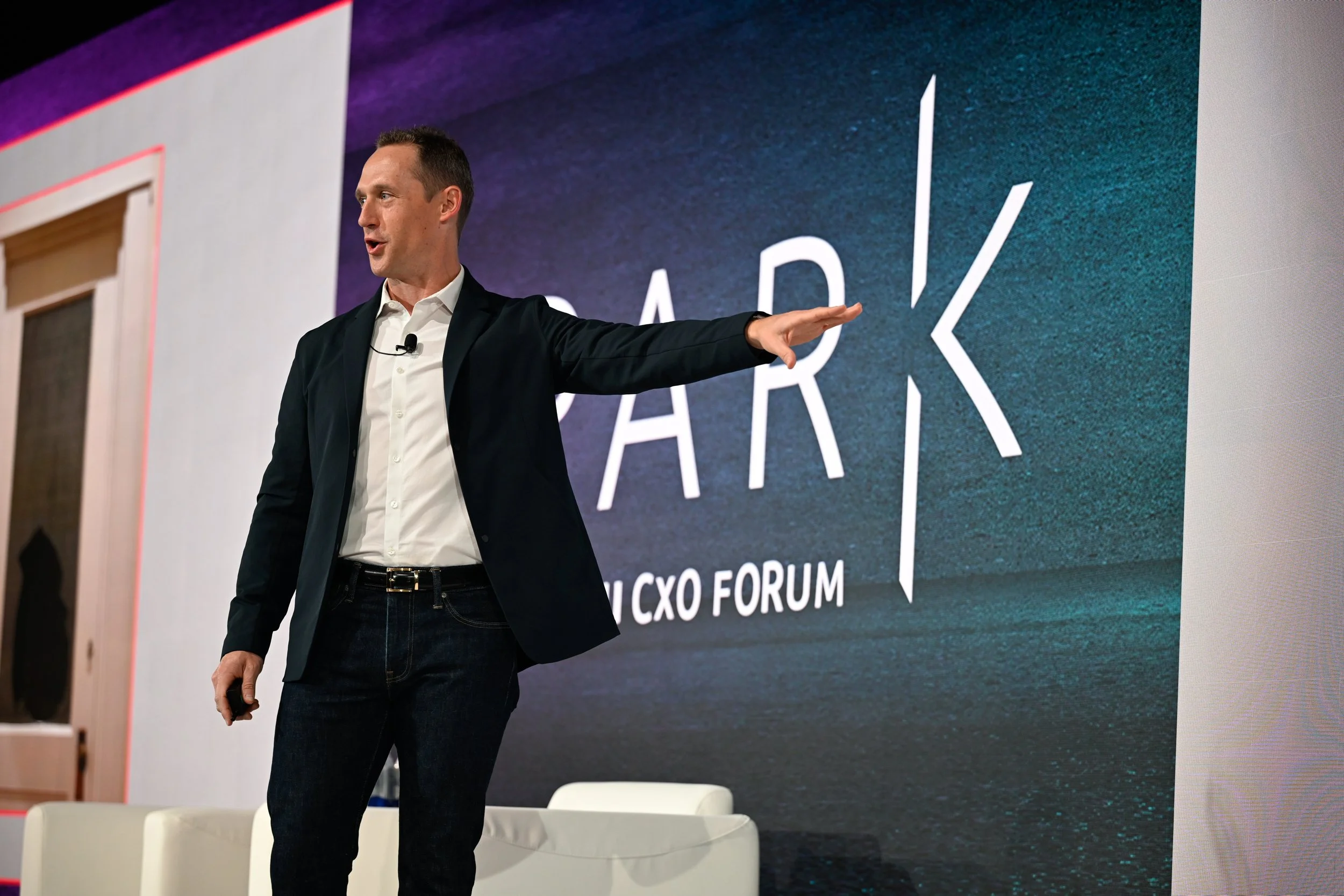

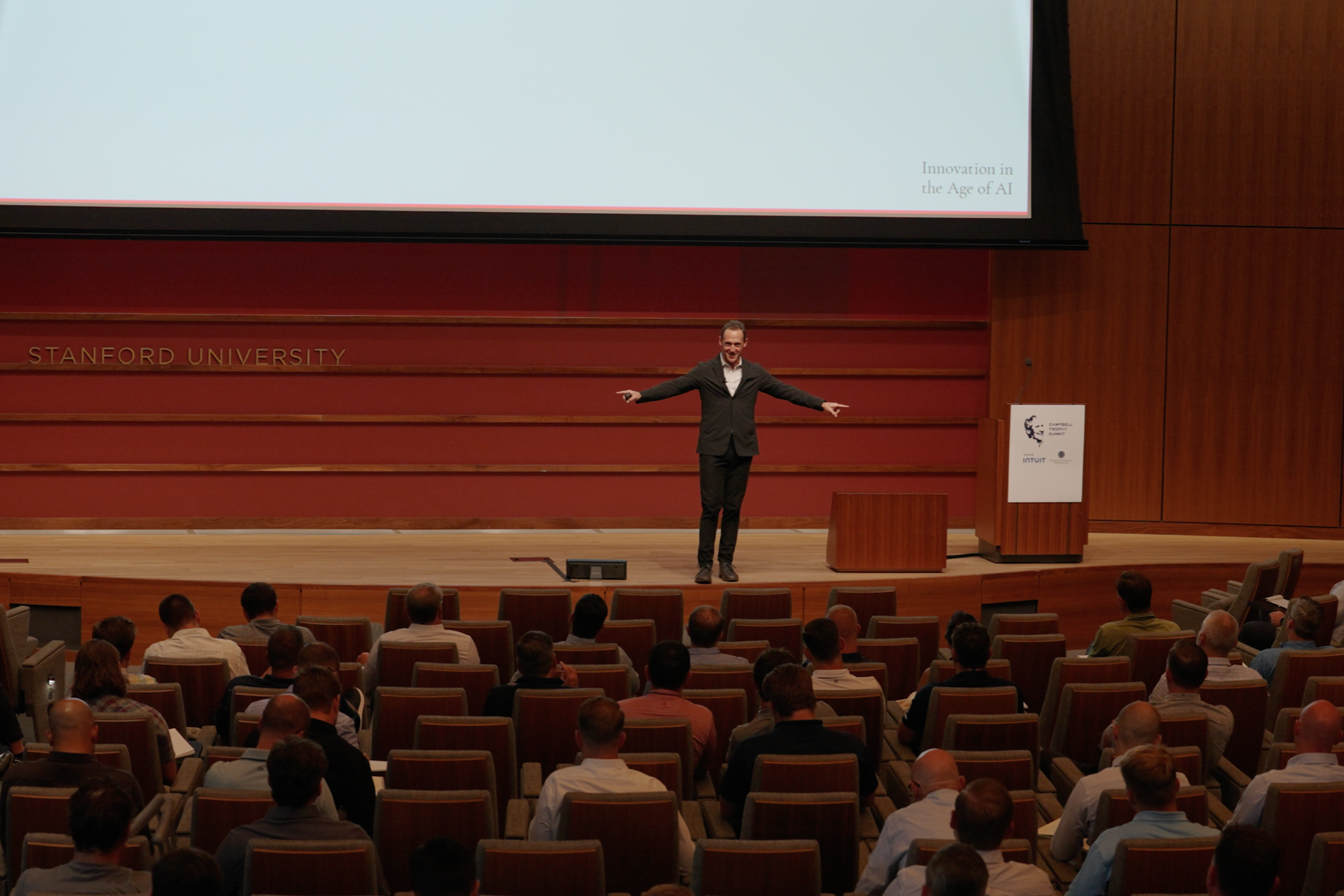


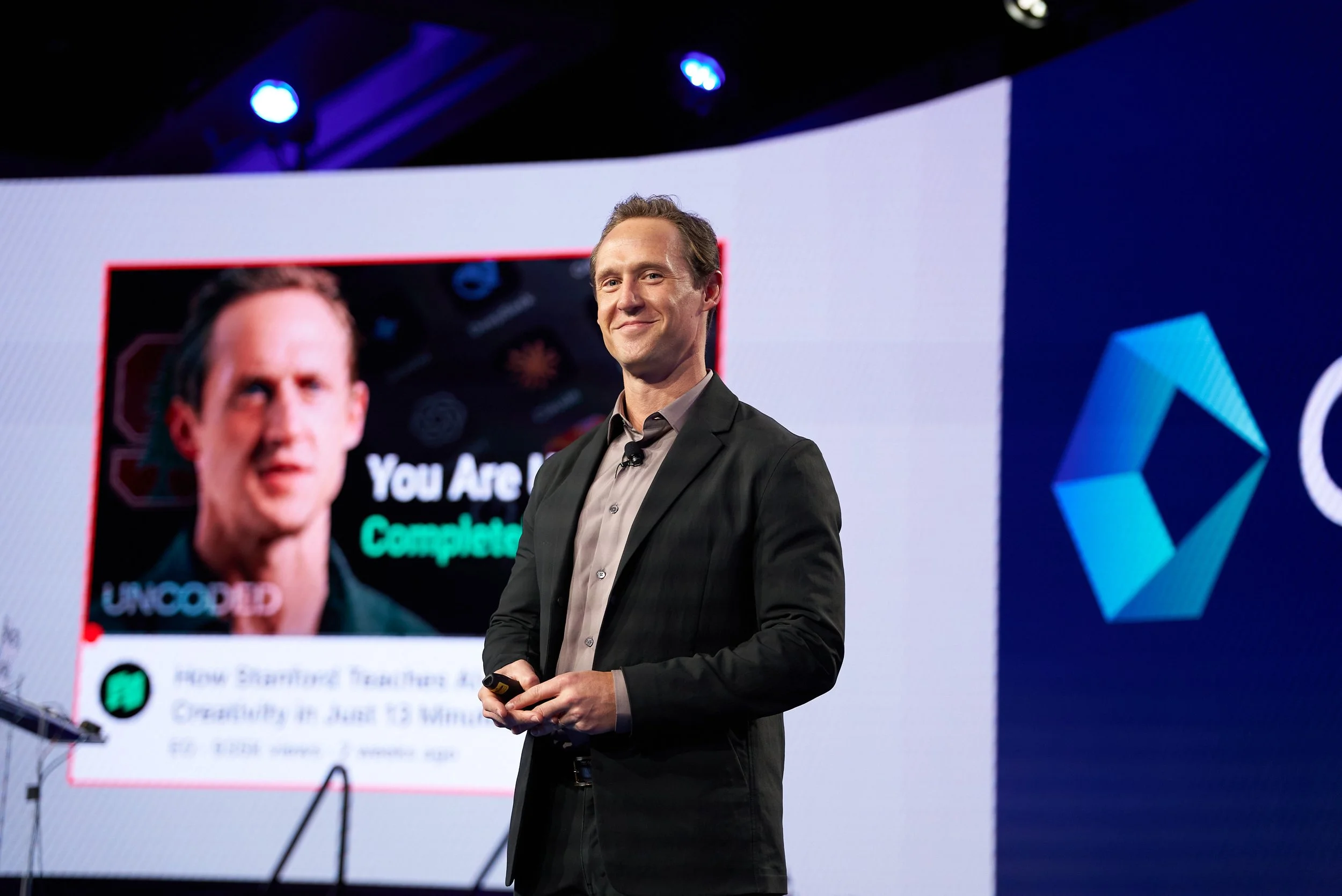
Trusted & Recognized as One of the Best AI Speakers
Viral Video | 3 Million+ Views
Watched by over 3 million people worldwide, Stanford’s Jeremy Utley reveals why most are missing AI’s true potential. The problem isn’t the tools, it’s our mindset. With a simple shift in approach, you can unlock creativity and results most never reach.
You Are Using AI Completely Wrong
Video | 402K+ Views
You’re Not Even Using 50% of Ai
Jeremy shows that the best AI users aren’t programmers, but coaches who treat AI like an eager intern. He reveals how to avoid AI gaslighting and turn it into your strategic thinking partner.

Jeremy facilitates epiphanies.
He’s an adjunct professor at Stanford University, co-author of Ideaflow: The Only Business Metric That Matters, a Thinkers50 Top Innovation Leader, cohost of top 1% AI podcast Beyond the Prompt, and a General Partner at Freespin Capital.
He’s had the privilege of teaching over four million students of innovation worldwide.
He’s a sought-after keynote speaker, and routinely receives “top marks” from audiences around the world.
His current research passion is helping individuals and organizations accelerate their comfort and confidence leveraging generative AI.
What organizations say about Jeremy Utley
“Jeremy is an amazing speaker! He arrived early, connected with the client and attendees, and brought incredible energy to his presentation. Throughout his talk, he had the audience participate in short exercises with one another, showing how collaborating with AI as a colleague — rather than just a tool — makes it far more effective. The audience loved the interactive format.”
— Business Conferences / Audiences
What People Are Saying
“I had the chance at dinner to ask in an open ended way for comments about the day -- and by far your talk was the highlight! We (faculty) were all admiring your mastery in engaging the group. This was really a virtuoso turn on the podium...thank you!…I really do admire both the substance of what you deliver in these talks and your incredibly engaging way of presenting it.”
Martha Meier Weiland Professor of Medicine, Founding Co-Chair, Stanford Bioengineering, Founder & Director, Stanford Byers Center for Biodesign
“Jeremy Utley spent half-a-day with our clients opening the world of design thinking as a business practice. In short, he wowed them. It was amazing to see a room of 125 c-suite executives designing under Jeremy’s direction. The executives laughed and cried, reaching deep to design an experience that would delight and move a loved one.”
Founding Partner of Insigniam
“Jeremy's work is truly impactful to international innovation audiences. I had the honor to host Jeremy's talk at the International Design Thinking Symposium organized by Stanford Center for Design and Innovation Research in Fall 2020, and his talk was definitely one of the highlights of the event. His talk was very insightful and inspirational not only to the industry attendees but also to the academic scholars in the design research community..”
Executive Director of Food Design Research, Center for Design Research, Stanford Engineering

Previous engagements include:
Nvidia - Special all-hands Keynote
Softserve x Google Cloud - CXO Keynote
Southwest Airlines - Keynote for top 1,000 leaders
Adobe - Keynote at Learning Summit 2025 Las Vegas
General Motors - Keynote for CCXO and 3,000 of her staff
Cardinal Health - Keynote for CIO and 2,000 senior leaders
Visa - Marketing Fireside Chat
US Bank - Keynote for CPO and 1,000 designers
HSBC - Keynote for CIO and 2,500 innovators
Intuit - Keynote for P&P Internal
Constellation - Keynote at annual gathering, Connected Enterprise Conference
Qualtrics - Keynote for top 200 VIP CXO’s at the X4 conference
FICO - Keynote for CMO and 1,000 attendees of flagship annual conference (FICOWorld)
Cognizant - Keynote for healthcare summit in San Antonio
Deloitte - Keynote for engagement managers
JMI - Keynote for Go-To-Market Roundtable
American Health Care Association - Keynote at annual conference
Campbell Trophy Summit - two-time keynote speaker at annual gathering of “Academic All-Americans” at Stanford
Capgemini - Spark CXO Forum - Annual Marquee Gathering of Client CXOs
Pinterest - Keynote for CTO org in Palo Alto
Qualtrics - Keynote for CXO summit in Ft. Lauderdale, Keynote for VIPs of X4
Slalom - “AI for All” panel with Ethan Mollick and Kate O’Neil
BNY - Keynote at annual CXO gathering
Other past clients include PepsiCo, Instacart, Nvidia, Mitsubishi, USAA, Boston Scientific, Ally Bank, San Antonio Spurs, BJ’s Restaurants, Hyatt Hotels, Michelin, Bain & Co, John Deere






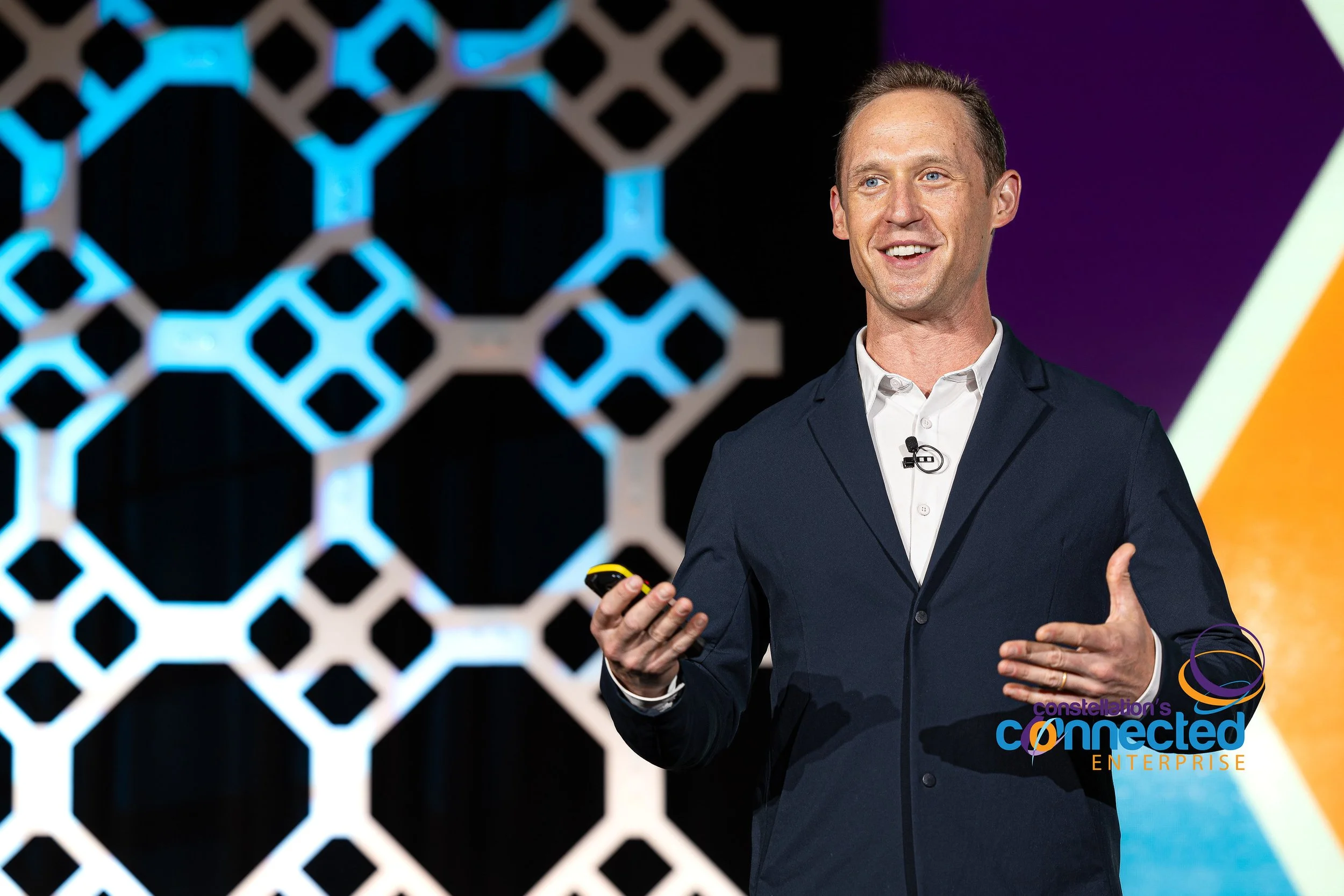






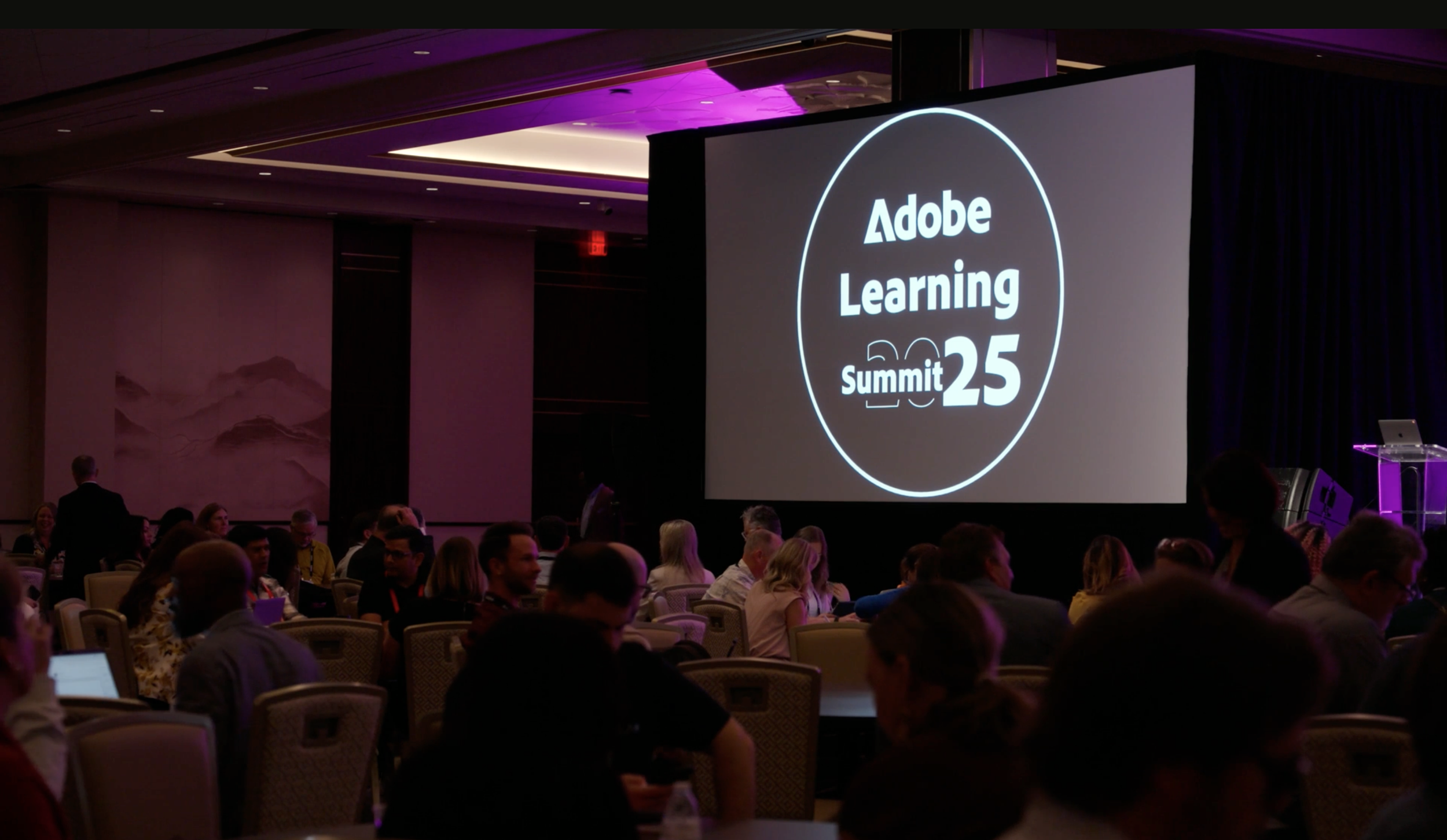

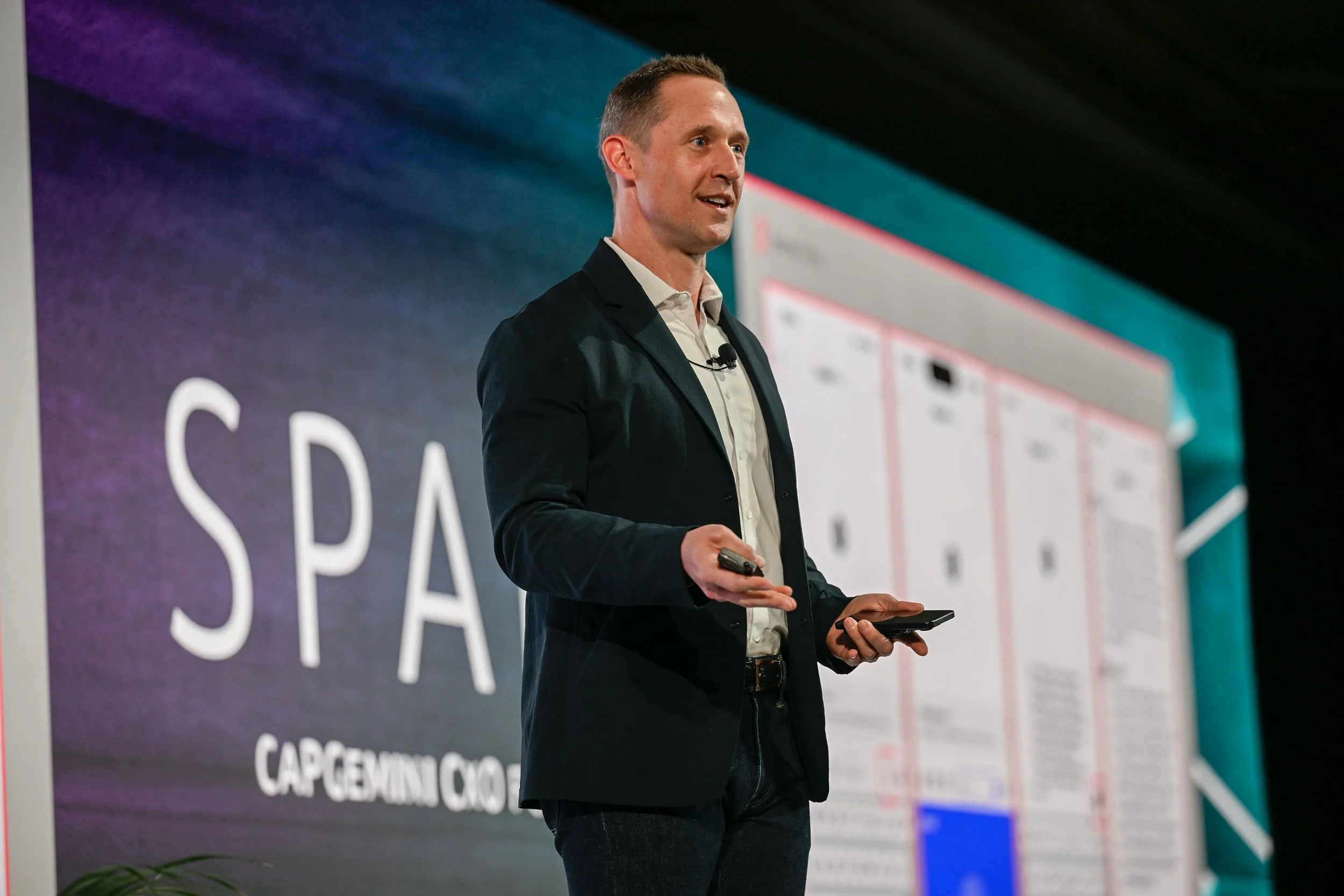


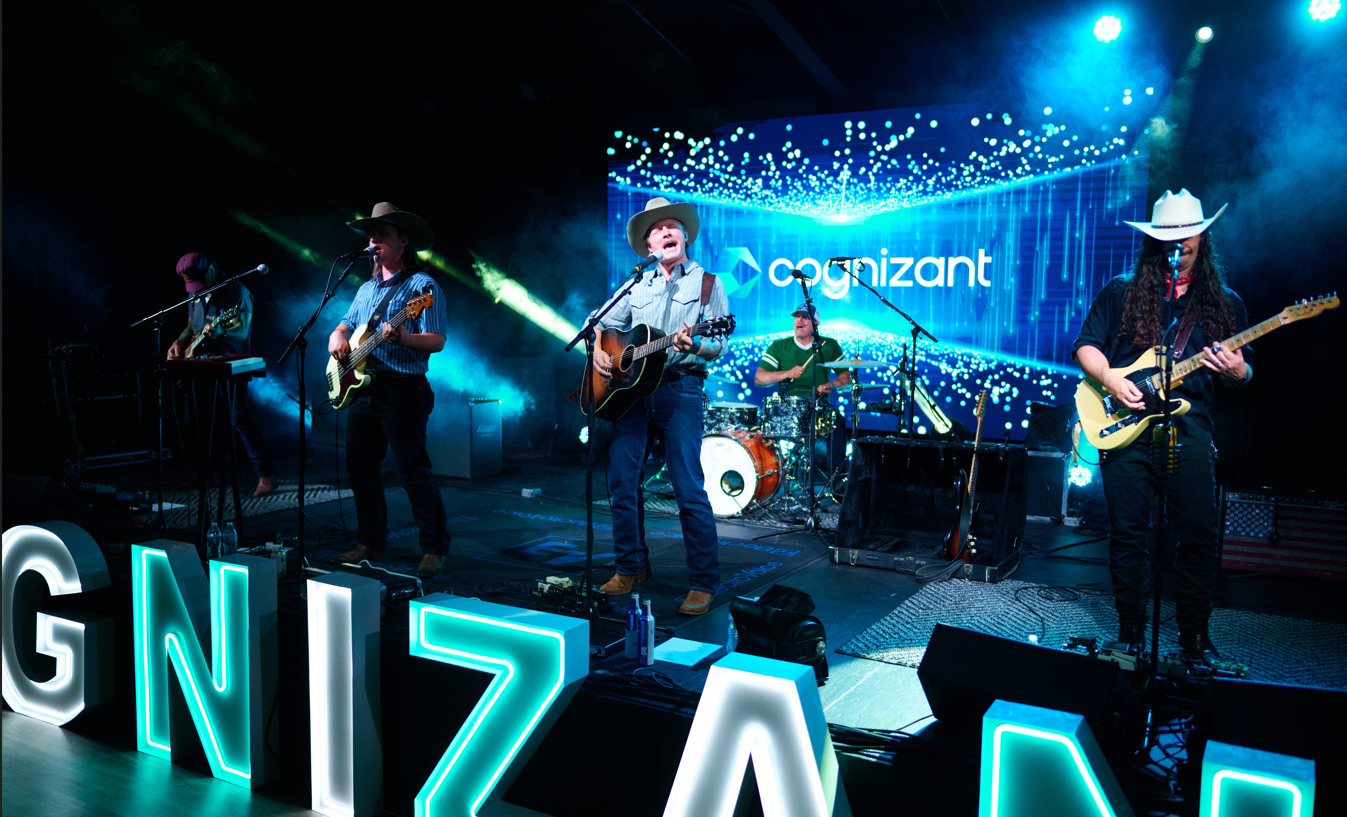




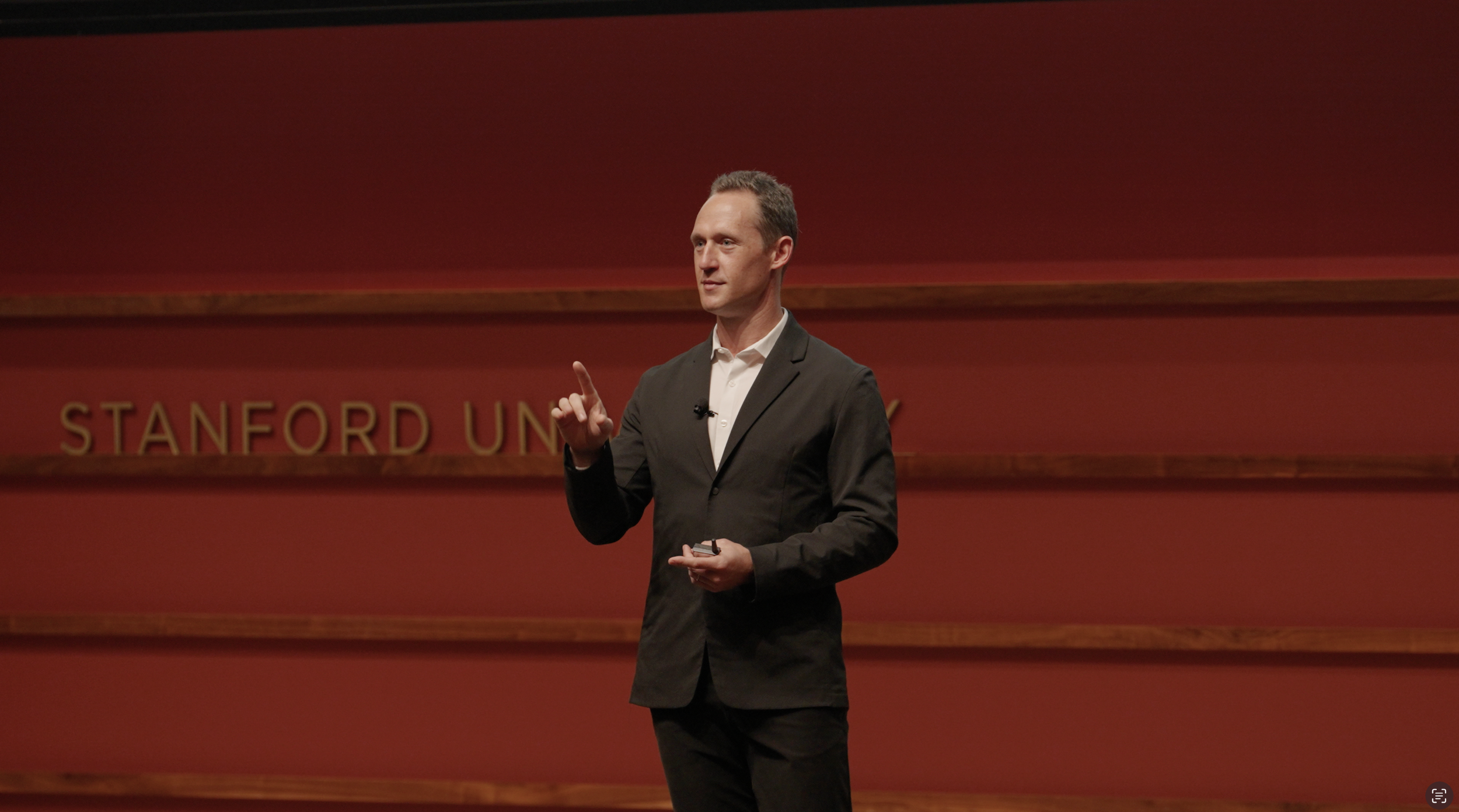
Speaking Engagements FAQ Answered by Jeremy
About You & Your Work
-
I do three things generally:
Keynote addresses - inspiring and illuminating talks that spark imagination
Advising senior leaders - usually one-on-one relationships with CEOs, CMOs, or Presidents to build capacity for AI and innovation mindsets
Teaching/workshops - running classes and boot camps to build capacity and give people a chance to do new things
I'm an adjunct professor at Stanford (since 2009), author of Ideaflow, and host of the top 1% podcast Beyond the Prompt. I describe myself as a "professional student" or "front row student" - sharing what I learn as I go.
Content & Core Message
-
My core message centers on closing the capability gap between AI's theoretical potential and people's on-the-ground reality. Research shows:
Individuals with AI can achieve 25% more work, 12% faster, 40% higher quality
Yet 90% of people aren't experiencing meaningful productivity gains
The fundamental shift: Stop treating AI like a tool, start treating it like a teammate.
Teams that treat AI like technology underperform. Teams that treat AI like a colleague outperform. It's less like a tech rollout and more like onboarding a new hire.
-
I often do this exercise: "Raise your hand if you use AI once a month. Keep it up if weekly. Daily. Hourly."
Then I say: The only right answer to "How often do you use AI?" is "I don't. I work with it."
Do you "use" your CMO? Your legal counsel? No - you work with them. The language we use reveals our mindset. High performers don't "use" AI - they collaborate with it, give it feedback, coach it, and have multi-turn conversations with it.
-
Absolutely. My academic expertise is in creativity and innovation, now AI-augmented. I can weave in creativity principles - this often helps build trust and connection, showing "he's been in our shoes" and understands the creative process. The single greatest determinant of quality ideas is quantity - that principle applies whether using AI or not.
Audience & Customization
-
I ask several key questions:
Who's in the room? (Roles, seniority, functions)
What problems are they trying to solve in their daily work?
What's the AI baseline in the room? (Are they using ChatGPT? Do they have AI governance?)
What other sessions are happening? (I love to connect themes or set the table if I'm going first)
I'm very happy to sprinkle in industry-specific context and examples. I work across diverse organizations - from Coppel Group (retail in Mexico) to San Antonio Spurs to Hyatt Hotels to FICO - so I can draw relevant parallels.
-
Yes! I work as an "AI Sherpa" to several CEOs:
Mark Hoplamazian (CEO, Hyatt Hotels)
R.C. Buford (CEO, San Antonio Spurs)
Nikhil Behl (President, FICO)
Ali Rouhani (President, Qualtrics)
I also work with Coppel Group in Mexico (did the 9-week transformation that went viral), and can share stories from Moderna, Intuit, Qualtrics, and others. I'm always happy to share what I'm learning from these partnerships.
Format & Logistics
-
Flexible! Common formats:
45 min presentation + 15 min Q&A (most common)
60 min total (can adjust the split)
90 min for deeper dives with interactive elements
I can adapt to your needs.
-
Yes! I love interactivity. Popular exercises:
Problem Haver/Problem Solver - Pairs discuss a real problem (3 min), then compare that conversation to their last ChatGPT interaction. Everyone realizes "Oh, THAT'S what you mean by teammate!"
Live AI prompting - Give the audience a prompt to try in real-time using their voice (not fingers). Creates fun chaos and immediate learning.
Strategic thought partner - Everyone uses a prompt to get AI to be their strategic advisor on a major decision, then shares one surprising insight via word cloud/Slido.
"Interview me about my job" - At the end, give them a prompt: "Have ChatGPT interview you about your workflow to recommend 2 obvious and 2 non-obvious ways to use AI in your work." This seeds hallway conversations for the rest of your event.
-
I typically bring my own laptop (I love certain fonts and have embedded video clips - Taylor Swift, Sir Jony Ive). However, I'm very non-precious about slide design.
If you have a design team who wants to "zhuzh it up" or make it on-brand, I see that as a gift! Send me your template if you have one.
Typical timeline: I'll send slides 1-2 weeks before the event for your review/design work.
-
Not usually super precious about it, but I appreciate the option - either the night before or morning of works great. As long as there's a clicker for advancing slides, I'm generally good to go.
Pre-Event Prep
-
Yes, please! I love to meet my introducer 15 minutes before the talk. This builds rapport and helps them introduce me with personality rather than just credentials. People who meet me talk about character; people who don't meet me just read my CV.
Also, if you want to send the introducer a couple podcast episodes beforehand, they often become "fanboys/fangirls" and give a much more personal, enthusiastic introduction.
-
What kind of professor would I be if I didn't?
I often recommend sending attendees 1-2 podcast episodes as "homework" before the event (Brad Anderson from Qualtrics and Bryce Shalomel from Moderna are favorites). This primes them to engage more deeply with the content.
Your Free AI Bootcamp Offering
-
I have a 2-week AI bootcamp course on my website. It's daily drills designed to spark people's imagination: "Oh, I didn't know I could do that!"
I offer this FOR FREE to event attendees as a value-add for your organization. I can:
Create a QR code for your event
Give you credit for "sponsoring" the course
Manually enroll people afterward
This is especially valuable if you want to:
Extend learning beyond the keynote
Create ongoing engagement
Give people hands-on practice
Spark imagination (the #1 barrier to AI adoption)
Hundreds often register when organizations share this with their broader teams.
Beyond the Keynote
-
Yes! My ideal engagement model:
Phase 1: Virtual Keynote (generate interest) ↓ Phase 2: AI Proficiency Program (4 weeks)
2 weeks of daily email drills before first session
4 weekly 1-hour sessions covering:
Week 1: Techniques for better output
Week 2: Framework for consistent output
Week 3: Beyond basic LLMs
Week 4: Student showcase ↓ Phase 3: Ideation Workshop (identify new value creation opportunities) ↓ Phase 4: AI Mastery Program (build solutions, bespoke software) ↓ Multiple cohorts (scale across organization)
I also do ongoing CEO advisory (e.g., 30-min weekly calls with Hyatt's CEO).
Important: This requires a senior leader champion - someone I meet with monthly minimum who feels accountable and urgent about the transformation.
-
This is critical:
Value Capture = efficiency gains, productivity, "getting a day back per week"
This is table stakes
Gets you to parity with competitors
Everyone paying attention is doing this
Value Creation = doing things that were impossible before
This is competitive advantage
This is the real ballgame
You can't imagine value creation without first capturing value
Most organizations declare victory too early when they hit productivity gains. That's just warming up!
Practical Details
-
Real success metrics I track:
Number of turns in a conversation (not just one-off prompts)
Multi-turn rate (in one org: 6 months ago <2% had 4+ turn conversations; now 8%)
Quality of collaboration, not just adoption rates
More use is not better. Better use is better.
-
INon-use is malpractice. And SO IS MISUSE.
If you went to a cardiologist who said "lay still, I'll put my ear on your chest" instead of using a stethoscope or CAT scan, you'd find another doctor. Why? Because not using every available technology to do your best work is malpractice.
Similarly, only using AI for email suggestions is malpractice. You're not a turbocharged professional - you're barely scratching the surface.
An unwired, un-augmented human output will soon feel like a Web 1.0 website on your phone - outdated and concerning.
Your Approach & Philosophy
-
I prefer working with partners where I can learn as much as I teach (or hopefully more than I teach). I don't know it all.
If we can get alignment around creating a space for experimentation and mutual learning, we'll have a lot of fun together. I love working with people eager to unleash their individuals and organizations.
-
HR/L&D is usually better. This isn't a technology rollout - it's a human transformation that requires behavior change.
Coming from CHRO/L&D means you're thinking about change management, early adopters, champions, and mechanisms for gathering and deploying learning across departments.
If it comes from CTO/CIO, it often becomes about licenses, seats, and permissions rather than unleashing people.

